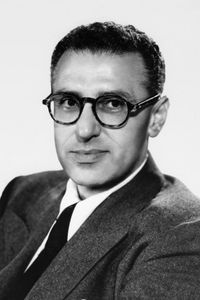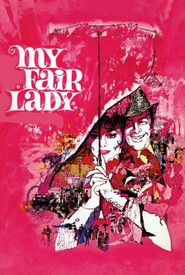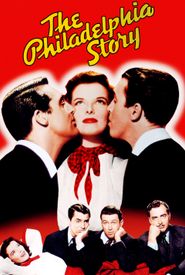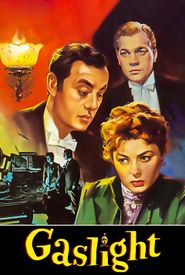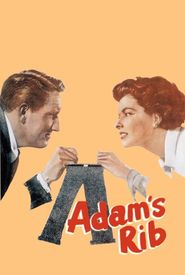George Dewey Cukor was born on July 7, 1899, on the Lower East Side of New York City to Viktor Cukor, an assistant district attorney, and Helén Ilona Gross. His middle name "Dewey" honored Admiral George Dewey, a war hero who won the Battle of Manila Bay in 1898.
As a child, Cukor received dancing lessons and soon fell in love with the theater, appearing in several amateur plays. In 1906, he performed in a recital with David O. Selznick, who would later become a close friend.
Cukor's teenage years were marked by his frequent visits to the New York Hippodrome, a well-known Manhattan theater. He often cut classes while attending high school to attend afternoon matinees. He later took a job as a supernumerary with the Metropolitan Opera, and occasionally performed there in blackface.
After graduating from DeWitt Clinton High School in 1917, Cukor's father wanted him to pursue a legal career and had him enrolled at City College of New York. However, Cukor lost interest in his studies and dropped out of college in 1918. He then took a job as an assistant stage manager and bit player for a touring production of the British musical "The Better 'Ole".
In 1920, Cukor became the stage manager of the Knickerbocker Players, a theatrical troupe. In 1921, he became the general manager of the Lyceum Players, a summer stock company. In 1925, he was one of the co-founders of the C.F. and Z. Production Company, which started working as a theatrical director. He made his Broadway debut as a director with the play "Antonia" by Melchior Lengyel.
Cukor's theatrical troupe included at various times Louis Calhern, Ilka Chase, Bette Davis, Douglass Montgomery, Frank Morgan, Reginald Owen, Elizabeth Patterson, and Phyllis Povah. He attained great critical acclaim in 1926 for directing "The Great Gatsby", an adaptation of a then-popular novel by F. Scott Fitzgerald.
Cukor's first notable film work was serving as a dialogue director for "All Quiet on the Western Front" (1930). He then worked as a co-director and later as a solo director, earning a weekly salary of $1500. He co-directed the film "One Hour with You" (1932) with Ernst Lubitsch, but Lubitsch demanded sole directorial credit. Cukor filed a legal suit but eventually had to settle for a credit as the film's assistant director.
During the 1930s, Cukor was entrusted with directing films for RKO's leading actresses, including Katharine Hepburn, although not always with box-office success. He directed such box office hits as "Little Women" (1933) and "Holiday" (1938),but also notable flops such as "Sylvia Scarlett" (1935).
In 1936, Cukor was assigned to work on the film adaptation of the blockbuster novel "Gone with the Wind" by Margaret Mitchell. However, he did not get to direct the film, as producer David O. Selznick decided to assign the directing duties to Victor Fleming. Cukor's involvement with the film was limited to coaching actresses Vivien Leigh and Olivia de Havilland.
Cukor's film career was interrupted by World War II, as he joined the Signal Corps in 1942. Given his experience as a film director, Cukor was soon assigned to producing training and instructional films for army personnel. He wanted to gain an officer's commission, but was denied promotion above the rank of private. Cukor suspected that rumors of his homosexuality were the reason he never received the promotion.
During the 1940s, Cukor had a number of box-office hits, including "A Woman's Face" (1941) and "Gaslight" (1944). He forged a working alliance with screenwriters Garson Kanin and Ruth Gordon, and the trio collaborated on seven films between 1947-1954.
Until the early 1950s, most of Cukor's films were in black-and-white, and his first film in Technicolor was "A Star Is Born" (1954),with Judy Garland as the leading actress. Casting the male lead for the film proved difficult, as several major stars were either not interested in the role or were considered unsuitable by the studio. Cukor had to settle for James Mason as the male lead, but the film was highly successful and received 6 Academy Award nominations.
Cukor had a handful of critical successes over the following years, including "Les Girls" (1957) and "Wild Is the Wind" (1957). He also helmed the unfinished "Something's Got to Give"
